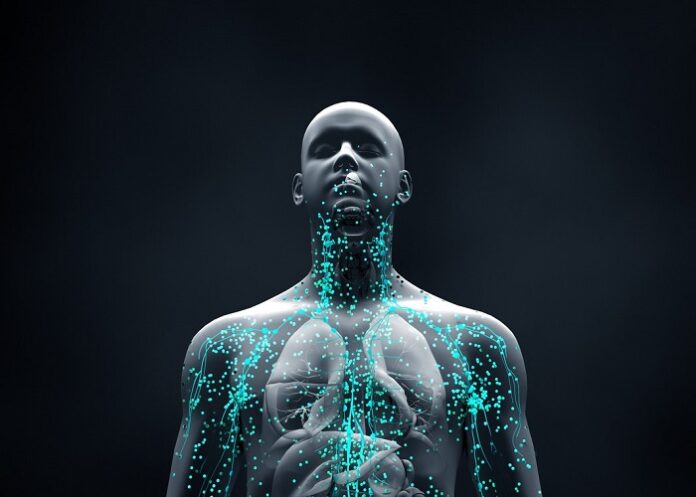Scientists have discovered differences in the immune response that could explain why some people seem to escape Covid infection, and which might, they say, provide a springboard for the development of effective treatments and vaccines.
The study, in which healthy adults were intentionally given a small nasal dose of the Covid virus, suggested that specialised immune cells in the nose could deflect the virus at the earliest stage before full infection takes hold.
Those who did not succumb to infection also had high levels of activity in a gene that is thought to help flag the presence of viruses to the immune system, reports The Guardian.
Using single-cell sequencing, researchers from the Wellcome Sanger Institute, University College London (UCL), Imperial College London, the Netherlands Cancer Institute and their collaborators, studied immune responses against SARS-CoV-2 infection in healthy adult volunteers, as part of the world’s first Covid-19 human challenge study.
Not all exposed participants went on to develop a Covid-19 infection, allowing the team to uncover unique immune responses associated with resisting sustained viral infection and disease.
The findings, published in Nature, provide the most comprehensive timeline to date of how the body responds to SARS-CoV-2 exposure, or any infectious disease. The work is part of the Human Cell Atlas initiative to map every cell type in the human body.
“These findings shed new light on the crucial early events that either allow the virus to take hold or rapidly clear it before symptoms develop,” said Dr Marko Nikolić, senior author of the study at UCL and honorary consultant in respiratory medicine.
“We now have a much greater understanding of the full range of immune responses, which could provide a basis for developing potential treatments and vaccines that mimic these natural protective responses.”
While previous studies have examined Covid-19 patients after symptom onset, in this latest study, reports MedicalXpress, the scientists set out to capture immune responses right from exposure in an immunologically-naive cohort for the first time.
As part of the UK Covid-19 Human Challenge study, 36 healthy adult volunteers without previous history of having Covid and who were unvaccinated were administered a low dose of the virus through the nose.
The study was undertaken in 2021 at the height of the pandemic.
In 16 volunteers, the researchers monitored activity in immune cells in the blood and the lining of the nose to provide the most detailed timeline of immune activity before, during and after infection.
These participants were found to fall into three distinct groups: six people developed a sustained infection and became ill; three people became transiently positive but without developing a full infection; and seven experienced an “abortive infection”. This subset never tested positive, but the tests showed they had mounted an immune response.
In the abortive and transient groups, samples taken from before exposure to Covid showed these volunteers had high background levels of activity in a gene called HLA-DQA2. This was seen in “antigen-presenting” cells, which flag danger to the immune system.
“These cells will take a little bit of the virus and show it to immune cells and say: ‘This is foreign: you need to go and sort it out,’” said Dr Kaylee Worlock of UCL, first author of the study.
The findings suggest that people who have high levels of activity in this gene may have a more efficient immune response to Covid, meaning the infection never gets beyond the body’s first line of defence.
However, they were not completely immune – the volunteers were followed after the study and some later caught Covid in the community.
In those who briefly tested positive, a rapid immune response in nasal cells, within a day of exposure, and a slower immune response in blood cells, were also recorded. In comparison, those who developed a full infection had a much slower nasal response, starting on average five days after exposure, allowing the virus to establish itself.
The team said the findings could provide a basis for developing more effective treatments and vaccines that mimic optimal protective responses.
Study details
Human SARS-CoV-2 challenge uncovers local and systemic response dynamics
Rik Lindeboom, Kaylee Worlock, Lisa Dratva, Masahiro Yoshida et al.
Published in Nature on 19 June 2024
Abstract
The Covid-19 pandemic is an ongoing global health threat, yet our understanding of the dynamics of early cellular responses to this disease remains limited1. Here in our SARS-CoV-2 human challenge study, we used single-cell multi-omics profiling of nasopharyngeal swabs and blood to temporally resolve abortive, transient and sustained infections in seronegative individuals challenged with pre-Alpha SARS-CoV-2. Our analyses revealed rapid changes in cell-type proportions and dozens of highly dynamic cellular response states in epithelial and immune cells associated with specific time points and infection status. We observed that the interferon response in blood preceded the nasopharyngeal response. Moreover, nasopharyngeal immune infiltration occurred early in samples from individuals with only transient infection and later in samples from individuals with sustained infection. High expression of HLA-DQA2 before inoculation was associated with preventing sustained infection. Ciliated cells showed multiple immune responses and were most permissive for viral replication, whereas nasopharyngeal T cells and macrophages were infected non-productively. We resolved 54 T cell states, including acutely activated T cells that clonally expanded while carrying convergent SARS-CoV-2 motifs. Our new computational pipeline Cell2TCR identifies activated antigen-responding T cells based on a gene expression signature and clusters these into clonotype groups and motifs. Overall, our detailed time series data can serve as a Rosetta stone for epithelial and immune cell responses and reveals early dynamic responses associated with protection against infection.
See more from MedicalBrief archives:
High immunity levels a challenge for Covid trials
Decoding some of Covid’s mysteries, four years on
Why some people don’t get sick from Covid-19 – US study

